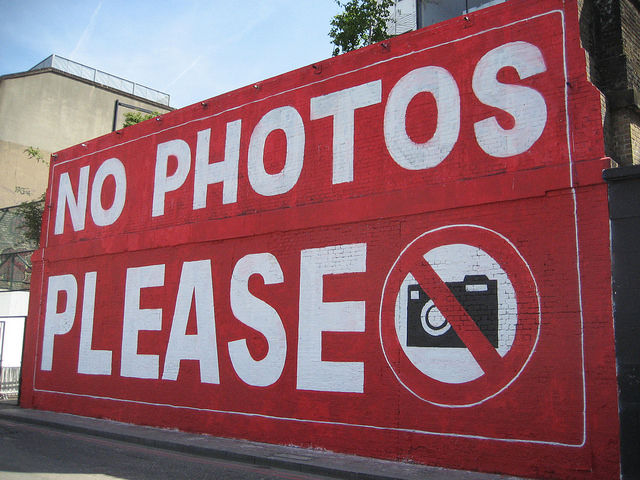Wyoming lawmakers adopted legislation making it illegal to gather data on open spacesuch as performing water quality tests or taking photographsfor the purpose of reporting to the government harmful farming practices, environmental degradation, or other ills.
The two-part legislative package, signed by Gov. Matt Mead earlier this year, is the subject of a constitutional legal challenge from environmentalists, animal rights advocates, and the media.
The legislation is so onerous that it disallows regulators from even acting upon evidence of wrongdoing if the data was gathered without a landowners' permission, even if the data was gathered on public land. And it gives private landowners fodder to sue for trespassing.The legislation was crafted after the Western Watersheds Project collected data that revealed water pollution and federal grazing violations. Those revelations prompted Wyoming regulators to include three streams on a list of water bodies violating state environmental quality standards.
The Wyoming federal court challenge comes two months after Idaho's pro-agribusiness law that barred the secret recording of livestock was deemed unconstitutional by a federal judge who ruled that the so-called "ag gag" law violated the First Amendment.
The Idaho decision, and the outcome of the Wyoming suit, threaten "ag gag" laws in Iowa, Kansas, Missouri, Montana, North Dakota, and Utah. The Wyoming legislation appears to be the most Draconian of the lot, and it's being challenged by the National Press Photographer's Association, Western Watersheds Project, Natural Resources Defense Council, People for the Ethical Treatment of Animals, and the Center for Food Safety.
In the Wyoming litigation, the groups describe the legislation as the "Data Censorship Statutes." They impose up to a year in prison, a $1,000 fine, and civil trespassing liability for people who enter open lands without permission (PDF) to collect "resource data." The suit (PDF) describes "resource data" as "pictures of noxious weeds, samples of polluted water, videos of injured animals, or even notes on the landscapeand then communicate that data to a federal or state government agency."
"The Data Censorship Statutes not only obstruct the ability of Americans to collect and communicate such resource data to government agencies, they also require government agencies to ignoreand in some cases, to expungeresource data that a member of the public or the media has collected from open land in Wyoming without express authorization," says thesuit. "The Statutes are thus designed both to truncate public involvement and to require government agencies to act in ignorance."
The National Press Photographers Association said Wyoming has "unjustifiably put photojournalists at risk of civil suit and criminal prosecution" and said the legislation is a " blatant violation of constitutionally protected freedoms of the press that are the hallmark of this nation."
A spokesman for Mead said the governor signed the legislation "because he believes in private property rightswhether it's agricultural land or a city lotand he believes this legislation strengthens those rights."




Forget that.
It's open, public land, I'm taking pictures!
Nope!
Nothin' happ'nin' 'round here!
Jus' move along, folks... We'll take good care o' the water and the soil and the plants and the animals... You can trust us. ...
... ... but you can't watch...
According to this article, Feronia, you cannot go onto public land to take water samples for analysis.